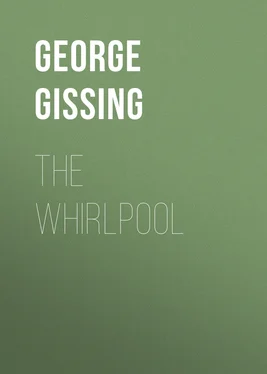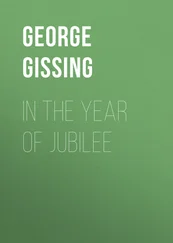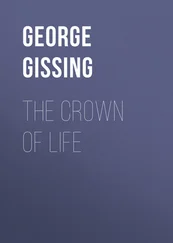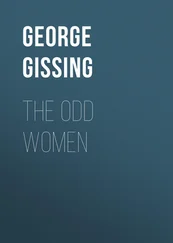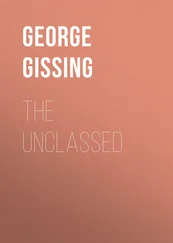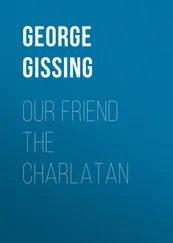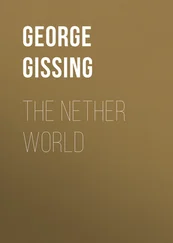George Gissing - The Whirlpool
Здесь есть возможность читать онлайн «George Gissing - The Whirlpool» — ознакомительный отрывок электронной книги совершенно бесплатно, а после прочтения отрывка купить полную версию. В некоторых случаях можно слушать аудио, скачать через торрент в формате fb2 и присутствует краткое содержание. Жанр: foreign_prose, literature_19, foreign_antique, на английском языке. Описание произведения, (предисловие) а так же отзывы посетителей доступны на портале библиотеки ЛибКат.
- Название:The Whirlpool
- Автор:
- Жанр:
- Год:неизвестен
- ISBN:нет данных
- Рейтинг книги:4 / 5. Голосов: 1
-
Избранное:Добавить в избранное
- Отзывы:
-
Ваша оценка:
- 80
- 1
- 2
- 3
- 4
- 5
The Whirlpool: краткое содержание, описание и аннотация
Предлагаем к чтению аннотацию, описание, краткое содержание или предисловие (зависит от того, что написал сам автор книги «The Whirlpool»). Если вы не нашли необходимую информацию о книге — напишите в комментариях, мы постараемся отыскать её.
The Whirlpool — читать онлайн ознакомительный отрывок
Ниже представлен текст книги, разбитый по страницам. Система сохранения места последней прочитанной страницы, позволяет с удобством читать онлайн бесплатно книгу «The Whirlpool», без необходимости каждый раз заново искать на чём Вы остановились. Поставьте закладку, и сможете в любой момент перейти на страницу, на которой закончили чтение.
Интервал:
Закладка:
'She was embittered at first, but is overcoming it. To tell you the truth, I think she will benefit by this trial. I don't like the words that are so often used in cant; I don't believe that misery does any good to most people—indeed, I know very well that it generally does harm. But Mrs. Abbott seems to be an exception; she has a good deal of character; and there were circumstances—well, I will only say that she faces the change in her life very bravely.'
'I do wish I knew her. But I daren't ask that. It's too much to expect that she could bear to see me and listen to what I have to say.'
'The less she's reminded of the past the better, I think.'
'But would it not be possible to do something? I am told that the sum was about fifteen hundred pounds. The whole of that I couldn't restore; but half of it—I could afford so much. Could I offer to do so—not directly, in my own name, but through you?'
Harvey reflected, his head and body bent forward, his hands folded together. In the flat beneath, someone was jingling operetta on a piano not quite in tune; the pertinacious vivacity of the airs interfered with Harvey's desire to view things seriously. He had begun to wonder how large a capital Mrs. Frothingham had at her command. Was it not probable that she could as easily bestow fifteen hundred pounds as the half of that sum? But the question was unworthy. If in truth she had set herself to undo as much as possible of the wrong perpetrated by her husband, Mrs. Frothingham might well limit her benefactions, be her fortune what it might.
'I will do whatever you desire,' he said, with deliberation. 'I cannot answer for Mrs. Abbott, but, if you wish it, she shall know what you have in mind.'
'I do wish it,' replied the lady earnestly. 'I beg you to put this before her, and with all the persuasion you can use. I should be very, very glad if she would allow me to free my conscience from a little of this burden. Only that I dare not speak of it, I would try to convince you that I am doing what my dear husband himself would have wished. You can't believe it; no one will ever believe it; even Alma, I am afraid—and that is so cruel, so dreadful; but he did not mean to wrong people in this way. It wasn't in his nature. Who knew him better than I, or so well? I know—if he could come back to us–'
Her voice broke. The piano below jingled more vivaciously than ever, and a sound of shrill laughter pierced through the notes. Afraid to sit silent, lest he should seem unsympathetic and sceptical, Rolfe murmured a few harmless phrases, tending to nervous incoherence.
'I am thinking so much about Alma,' pursued the widow, recovering self-command. 'I am so uncertain about my duty to her. Of her own, she has nothing; but I know, of course, that her father wished her to share in what he gave me. It is strange, Mr. Rolfe, that I should be talking to you as if you were a relative—as if I had a right to trouble you with these things. But if you knew how few people I dare speak to. Wasn't it so much better for her to lead a very quiet life? And so I gave her only a little money, only enough to live upon in the simplest way. I hoped she would get tired of being among strangers, and come back. And now I fear she thinks I have behaved meanly and selfishly. And we were always so kindly disposed to each other, such thorough friends; never a word that mightn't have passed between a mother and her own child.'
'I gathered from her letter,' interposed Harvey, 'that she was well contented and working hard at her music.'
'Do you think so? I began to doubt—she wrote in low spirits. Of course, one can't say whether she would succeed as a violinist. Oh, I don't like to think of it! I must tell you that I haven't said a word to her yet of what I am doing; I mean, about the money. I know I ought to consider her as much as other people. Poor girl, who has suffered more, and in so many ways? But I think of what I keep for myself as hers. I was not brought up in luxury, Mr. Rolfe. It wouldn't seem to me hard to live on a very little. But in this, too, I must consider Alma. I daren't lose all my acquaintances. I must keep a home for Alma, and a home she wouldn't feel ashamed of. Here, you see, she could have her friends. I have thought of going to Leipzig; but I had so much rather she came to London—if only for us just to talk and understand each other.'
Harvey preserved the gravest demeanour. Of Alma he would not permit himself to speak, save in answer to a direct question; and that was not long in coming.
'I am sure you think I should be quite open with her?'
'That would seem to me the best.'
'Yes; she shall know all my thoughts. But with regard to Mrs. Abbott, I know so well what she would say. I beg you to do me that kindness, Mr Rolfe.'
'I will write to Mrs. Abbott at once.'
The interview was at an end; neither had anything more to say. They parted with looks of much mutual kindliness, Harvey having promised to make another call when Mrs. Abbott's reply had reached him.
After exchanging letters with Mrs. Abbott, Harvey went over to see her; for the sake of both persons concerned, he resolved to leave no possibility of misunderstanding. A few days passed in discussions and reflections, then, at the customary hour for paying calls, he again ascended the many stairs to Mrs. Frothingham's flat. It had rained all day, and in this weather there seemed a certainty that the lady would be at home. But, as he approached the door, Harvey heard a sound from within which discomposed him. Who, save one person, was likely to be playing on the violin in these rooms? He paused, cast about him a glance of indecision, and finally pressed the electric bell.
Mrs. Frothingham was not at home. She might return very shortly.
'Is—Miss Frothingham at home?'
The servant did not straightway admit him, but took his name. On his entering the drawing-room, three figures appeared before him. He saw Alma; he recognised Miss Leach; the third lady was named to him as Miss Leach's sister.
'You knew I was in London?' Alma remarked rather than inquired.
'I had no idea of it—until I heard your violin.'
'My violin, but not my playing. It was Miss Leach.'
From the first word—her 'Ah, how d'you do' as he entered—Alma's tone and manner appeared to him forced, odd, unlike anything he remembered of her. In correcting him, she gave a hard, short laugh, glancing at Dora Leach in a way verging upon the ill-bred. Her look had nothing amiable, though she continuously smiled, and when she invited the visitor to be seated, it was with off-hand familiarity very unflattering to his ear.
'You came to see Mamma, of course. I dare say she won't be long. She had to go through the rain on business with someone or other—perhaps you know. Have you been in London all the summer? Oh no, I remember you told me you had been somewhere in France; on the Loire, wasn't it?'
Rolfe dropped a careless affirmative. His temper prompted him to ask whether Miss Frothingham knew the difference between the Loire and the Garonne; but on the whole he was more puzzled than offended. What had come over this young woman? Outwardly she was not much altered—a little thinner in the face, perhaps; her eyes seeming a trifle darker and deeper set; but in the point of demeanour she had appreciably suffered. Her bearing and mode of speech were of that kind which, in a man, would be called devil-may-care. Was it a result of student-life? If her stinted allowance had already produced effects such as this, Mrs Frothingham was justified in uneasiness.
He turned to Miss Leach, and with her talked exclusively for some minutes. As soon as civility permitted, he would rise and make his escape. Alma, the while, chatted with the younger sister, whom she addressed as 'Gerda'. Then the door opened, and Mrs. Frothingham came in, wearing her out-of-doors and gave him cordial welcome, though in few and nervous costume; she fixed her eyes on Rolfe with a peculiar intensity, words.
Читать дальшеИнтервал:
Закладка:
Похожие книги на «The Whirlpool»
Представляем Вашему вниманию похожие книги на «The Whirlpool» списком для выбора. Мы отобрали схожую по названию и смыслу литературу в надежде предоставить читателям больше вариантов отыскать новые, интересные, ещё непрочитанные произведения.
Обсуждение, отзывы о книге «The Whirlpool» и просто собственные мнения читателей. Оставьте ваши комментарии, напишите, что Вы думаете о произведении, его смысле или главных героях. Укажите что конкретно понравилось, а что нет, и почему Вы так считаете.
